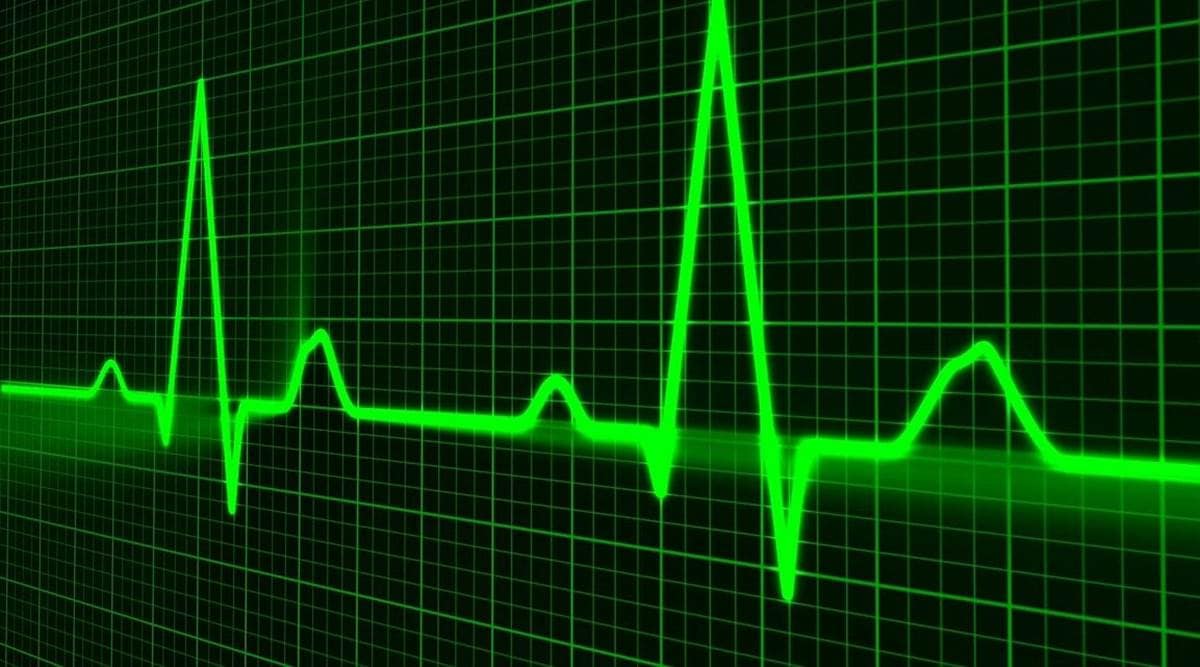Unhealthy and persistently high levels of stress hormones like adrenaline and cortisol can cause blood-clotting, which increases the risk of heart conditions, warns Dr Mohan Nair of the Holy Family Hospital

It is a known fact that stress impacts health — both mental and physical. In the pandemic, people may have been more stressed than ever, having to work their way through these uncertain times. In the long run, stress can have negative effect on many organs in the body, including the heart. Dr Mohan Nair, Coordinator & Head, Dept of Cardiology at the Holy Family Hospital says stress is one of the major causes of heart disease and even minor stress can trigger heart problems like poor blood flow to the heart muscle. Long-term stress can lead to blood-clotting, resulting in fatalities like stroke.
He answers some important questions for indianexpress.com. Read on to find out.
How does stress impact the heart and the way it beats?
Stress can affect behaviours and factors that trigger heart conditions such as high blood pressure and cholesterol levels, smoking, physical inactivity and obesity. People may consume alcohol and smoke to reduce their stress but these habits can increase blood pressure and may damage the artery walls of the heart.
ALSO READ | The kadha math: How much is too much?
Stress itself becomes a risk factor for heart diseases due to chronic stress exposure to the body. Unhealthy and persistently high levels of stress hormones like adrenaline and cortisol can cause blood-clotting, which increases the risk of heart conditions such as a racing heart or abnormal heartbeats also known as arrhythmia.
“Arrhythmia refers to abnormal beating of the heart — in case the heart beats either too fast or too slow, it can indicate a problem or abnormality with the heart’s electrical system. The heart generally beats silently and most of us do not pay attention to its rhythm. A simple sensation in the heart, however, may be a warning sign for a potential arrhythmia. The other symptoms include dizziness, breathlessness, chest pain, light-headedness, weakness and fainting,” says Dr Nair.
How can we manage a racing heart or abnormally-fast heartbeats?
On experiencing any of the above symptoms, one should consult a cardiac electrophysiologist. The diagnosis involves monitoring the pumping ability of the heart through an ECG. In more severe cases, an invasive test may be required involving the insertion of catheters with small electrodes to measure the electrical activity of the heart.
ALSO READ | Healthy living: This is why FSSAI recommends a plant-based diet
Post diagnosis, the treatment depends on how severely the arrhythmia is affecting your health. It is important to remember that not all arrhythmias are dangerous or life-threatening. Sometimes, the heart is perfectly healthy, but its regular rhythm is interrupted by emotional stress or physical activity levels, the doctor explains.
“Once detected, it is crucial to treat irregular heartbeats depending on their cause, as they can damage your heart. Some of the treatment options include medications, lifestyle changes, invasive therapies (electrical cardioversion, catheter ablation, pulmonary vein isolation), electrical devices (pacemakers, implantable cardioverter-defibrillator) or surgery.
What are some precautionary measures for controlling stress?
“The body responds to stress through manifestations such as a headache, back strain, or stomach pains. Stress can also decrease your energy levels, disturb your sleeping pattern and make you feel cranky, forgetful and out of control,” he warns.
ALSO READ | Can vitamin D help the body fight coronavirus? Here’s what a study finds
* Maintain a positive attitude
* Avoid smoking
* Avoid consumption of alcohol and caffeine
* Consume a healthy and well-balanced diet rich in fruits and vegetables
* Maintain a healthy body weight
* Get adequate sleep
* Practise breathing techniques and yoga to relax your mind and body
For more lifestyle news, follow us: Twitter: lifestyle_ie | Facebook: IE Lifestyle | Instagram: ie_lifestyle
? The Indian Express is now on Telegram. Click here to join our channel (@indianexpress) and stay updated with the latest headlines
For all the latest Lifestyle News, download Indian Express App.
Source: Read Full Article
